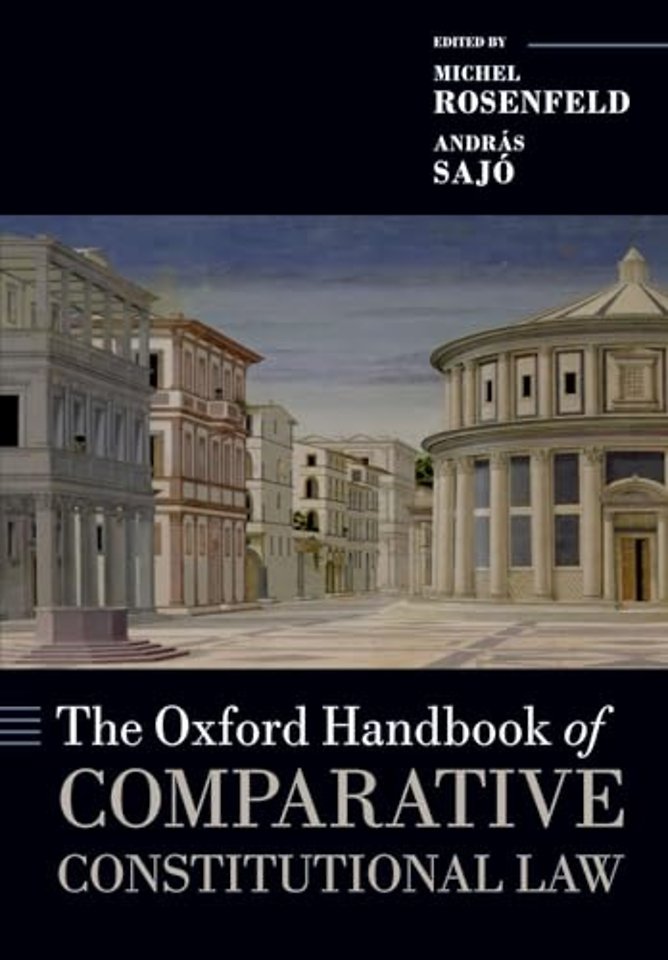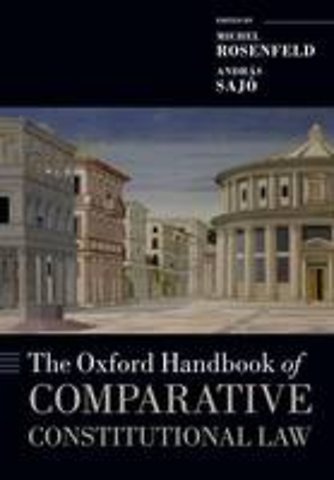The Oxford handbook of comparative constitution law
Samenvatting
The field of comparative constitutional law has grown immensely over the past couple of decades. Once a minor and obscure adjunct to the field of domestic constitutional law, comparative constitutional law has now moved front and centre. Driven by the global spread of democratic government and the expansion of international human rights law, the prominence and visibility of the field, among judges, politicians, and scholars has grown exponentially.
Even in the United States, where domestic constitutional exclusivism has traditionally held a firm grip, use of comparative constitutional materials has become the subject of a lively and much publicized controversy among various justices of the U.S. Supreme Court.
The trend towards harmonization and international borrowing has been controversial. Whereas it seems fair to assume that there ought to be great convergence among industrialized democracies over the uses and functions of commercial contracts, that seems far from the case in constitutional law.
Can a parliamentary democracy be compared to a presidential one? A federal republic to a unitary one? Moreover, what about differences in ideology or national identity? Can constitutional rights deployed in a libertarian context be profitably compared to those at work in a social welfare context? Is it perilous to compare minority rights in a multi-ethnic state to those in its ethnically homogeneous counterparts? These controversies form the background to the field of comparative constitutional law, challenging not only legal scholars, but also those in other fields, such as philosophy and political theory.
Providing the first single-volume, comprehensive reference resource, the 'Oxford Handbook of Comparative Constitutional Law' will be an essential road map to the field for all those working within it, or encountering it for the first time. Leading experts in the field examine the history and methodology of the discipline, the central concepts of constitutional law, constitutional processes, and institutions - from legislative reform to judicial interpretation, rights, and emerging trends.
Specificaties
Inhoudsopgave
1. Comparative Constitutional Law: A Contested Domain ; a Comparative Constitutional Law: A Continental Perspective ; b Comparative Constitutional Analysis in United States Adjudication and Scholarship ;
2. Comparative Constitutional Law: Methodologies ;
3. Carving out Typologies and Accounting for Differences Across Systems: Towards a Methodology of Transnational Constitutionalism ;
4. Types of Constitutions ;
5. Constitutionalism in Illiberal Polities ;
6. Constitutionalism and Impoverishment: A Complex Dynamic ;
7. The Place of Constitutional Law in the Legal System ;
PART II: IDEAS ;
8. Constitutions and Constitutionalism ;
9. Constitution ;
10. Rule of Law ;
11. Democracy ;
12. Conceptions of the State ;
13. Rights and Liberties as Concepts ;
14. Constitutions and the Public Private Divide ;
15. State Neutrality ;
16. The Constitution and Justice ;
17. Sovereignty ;
18. Carving out the Essence of Humanity: Human Dignity and Autonomy in Modern Constitutional Orders ;
19. Gender and the Constitution ;
PART III: PROCESS ;
20. Constitution-Making as a Process ;
21. States of Emergency ;
22. War Powers ;
23. Secession and Self-Determination ;
24. Referendum ;
25. Elections ;
PART IV: ARCHITECTURE ;
26. Horizontal Structuring ;
27. Federalism: Theory, Policy, Law ;
28. Internal Ordering in the Unitary State ;
29. Presidentialism ;
30. Parliamentarism ;
31. The Regulatory State ;
PART V: MEANINGS/TEXTURES ;
32. Constitutional Interpretation ;
33. Proportionality (1) ;
34. Proportionality (2) ;
35. Constitutional Identity ;
36. Constitutional Values and Principles ;
PART VI: INSTITUTIONS ;
37. Ensuring Constitutional Efficacy ;
38. Constitutional Courts ;
39. Judicial Independence as a Constitutional Virtue ;
40. The Judiciary: The Least Dangerous Branch? ;
41. Political Parties and the Constitution ;
PART VII: RIGHTS ;
42. Freedom of Expression ;
43. Freedom of Religion ;
44. Due Process ;
45. Associative Rights (The Rights to the Freedoms of Petition, Assembly, and Association), ;
46. Privacy ;
47. Equality ;
48. Citizenship ;
49. Socio-Economic Rights ;
50. Economic Rights ;
PART VIII: OVERLAPPING RIGHTS ;
51. (The Rights to the Freedoms of Petition, Assembly, and Association), ;
52. Immodest Claims and Modest Contributions: Sexual Orientation in Comparative Constitutional Law ;
53. Group Rights in Comparative Constitutional Law: Culture, Economics, or Political Power? ;
54. Affirmative Action ;
55. Bioethics and Basic Rights: Persons, Humans and Boundaries of Life ;
PART IX: TRENDS ;
56. Internationalization of Constitutional Law ;
57. The EU's Unresolved Constitution ;
58. The Constitutionalization of Public International Law ;
59. ECtHR Jurisprudence and the Constitutional Systems of Europe ;
60. Militant Democracy ;
61. Constitutionalism and Transitional Justice ;
62. Islam and the Constitutional Order ;
63. Constitutional Transplants, Borrowing, and Migrations ;
64. The Use of Foreign Law in Constitutional Interpretation







